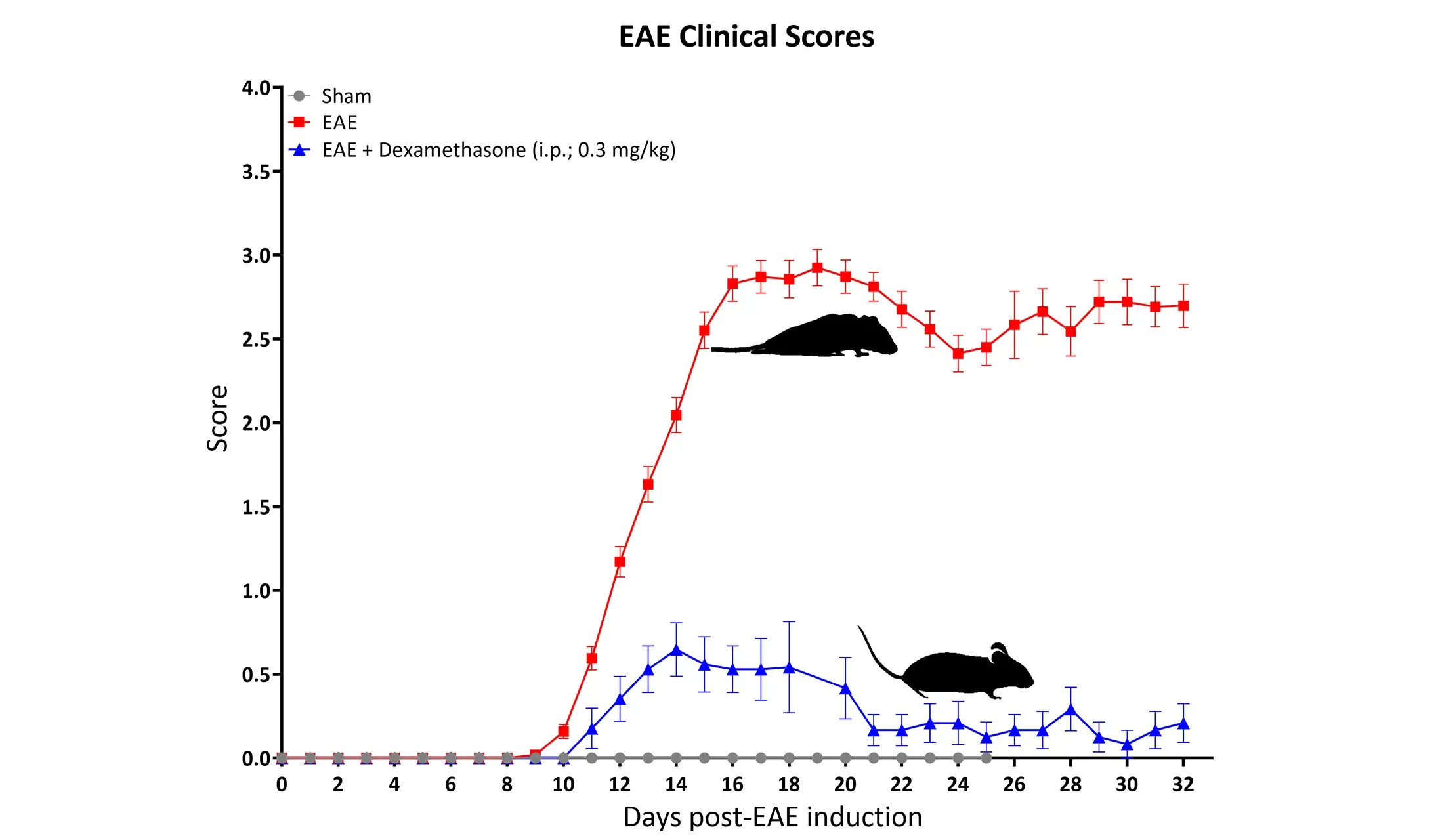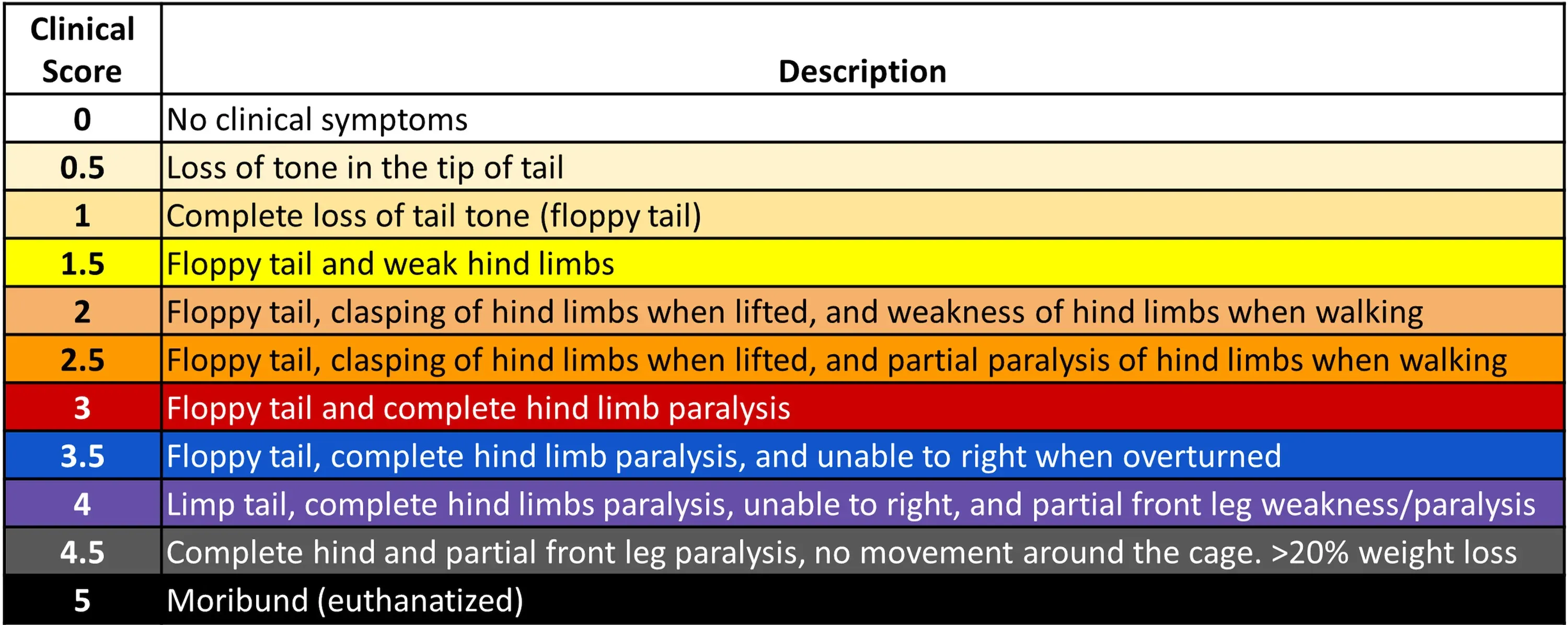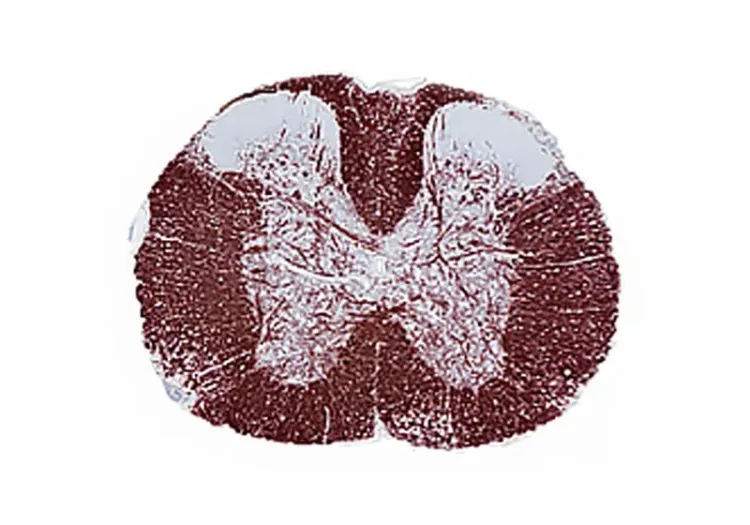EAE Model Overview
Experimental Autoimmune Encephalomyelitis (EAE) is a widely-used animal model for assessing therapeutic agents targeting autoimmune-mediated central nervous system (CNS) disease. EAE induction is most commonly performed by immunizing mice against myelin-derived antigens, such as:
- Myelin Oligodendrocyte Glycoprotein (MOG35-55 or MOG1-125)
- Myelin Basic Protein (MBP)
- Proteolipid Protein (PLP)
EAE mice model several key aspects of human MS, including the following key pathologic features:
- Neuroinflammation (activated microglia & reactive astrocytes)
- Peripheral inflammatory infiltrates (lymphocytes, macrophages)
- Demyelination in white matter tracts
- Axonal injury/damage & axon degeneration (Read More in our Resource - Experimental Autoimmune Encephalomyelitis & Axonal Injury)
The EAE model of multiple sclerosis demonstrates motor symptoms, such as paralysis, which recapitulates clinical symptoms seen in MS patients. The EAE animal model is characterized by a progressive paralysis followed by full or partial recovery, which may then be relapsing-remitting or chronic depending on the specific antigen used.
EAE Mouse Model Generation
- We most frequently use the MOG35-55 (MOG EAE) model in C57BL/6 mice, which is a well-established, chronic model of multiple sclerosis that is advantageous for therapeutic studies
- Injection of MOG35-55 peptide with Complete Freund's Adjuvant (CFA) and pertussis toxin (PTx) on a defined schedule to produce a T cell-mediated autoimmune disease
Our Validated EAE Mouse Model Measures
- Body weight
- EAE scores
- Grip strength test
- Neurofilament light chain measures in plasma & CSF (see Axonal Injury in EAE)
- Immunohistochemistry & multiplex immunofluorescence for myelin, peripheral inflammation (e.g. T cells, macrophages), microglia ,and astrocytes in the spinal cord

EAE scoring performed on the MOG35-55 EAE C57BL/6 mouse model. Note the significantly attenuated disease in the positive control group of mice, which nicely demonstrates the ability to show disease modification in this MS model.
Learn more about our characterization of this model, our validated measures, and our Preclinical Neuroscience CRO services.
Discover more about our Multiple Sclerosis Models
Related Content
Up-to-date information on Multiple Sclerosis and best practices related to the evaluation of therapeutic agents in MS animal models.
Experimental Autoimmune Encephalomyelitis (EAE) & Axonal Injury
This resource describes the methods available for measuring axonal damage & axon degeneration, including tissue markers and plasma & CSF neurofilament light chain (NfL; NF-L) levels, in the EAE model of multiple sclerosis (MS).
Demyelination & Remyelination in the Cuprizone Model
An overview of the methods available to measure myelin and oligodendrocytes in the cuprizone demyelination mouse model of multiple sclerosis (MS).

